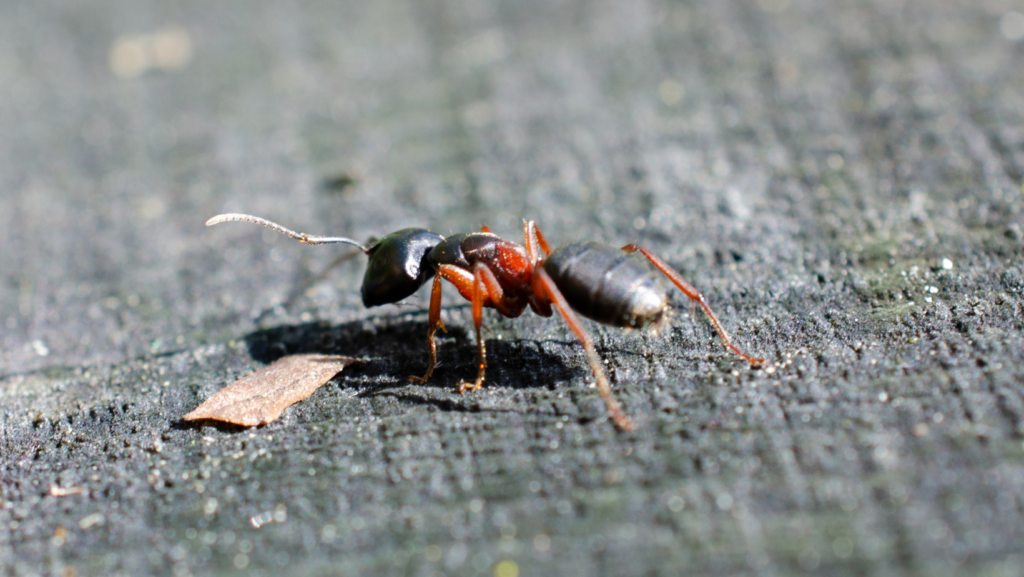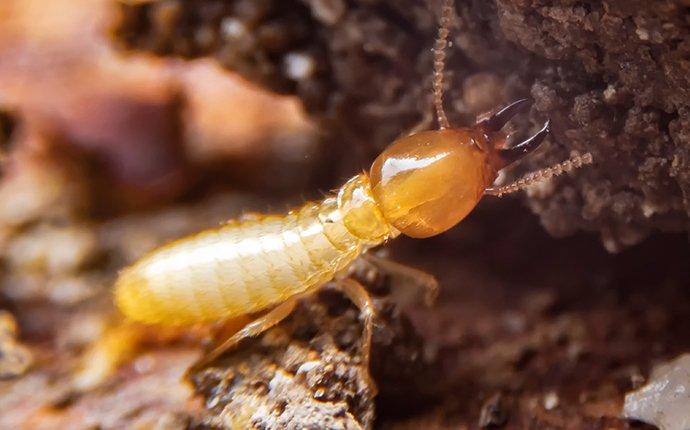Efficient Ant Control: Specialist Services to Eliminate Ant Infestations
Ecological Impact of Parasite Control: Harmonizing Performance With Sustainability
The environmental impact of parasite control is an essential problem that needs a fragile equilibrium between accomplishing effectiveness in ensuring and managing bugs sustainability of our environments. From the use of hazardous chemicals that permeate into our dirt and water to the unplanned repercussions on non-target species, the consequences of traditional insect control practices are significant.
Harmful Chemicals in Bug Control
The application of hazardous chemicals in insect control positions substantial environmental and wellness risks that warrant mindful factor to consider and reduction techniques. Pesticides, herbicides, and chemicals are generally made use of to eliminate bugs, but their extensive application can lead to unintentional consequences. These chemicals can contaminate dirt, water sources, and the air, influencing not just the targeted parasites yet likewise valuable bugs, wildlife, and people.

To resolve these risks, integrated pest management (IPM) methods are being promoted as a more lasting choice. IPM includes a combination of techniques such as organic control, environment manipulation, and the targeted use of chemicals as a last option (ant control burlington nc). By adopting an all natural method to pest control, we can reduce the environmental and health and wellness influences linked with unsafe chemicals while successfully handling pest populaces
Influence On Non-Target Variety
Thinking about the unintentional repercussions of pest control approaches, the effect on non-target types is a crucial element that needs thorough analysis. While bug control actions aim to target specific pests, other organisms in the ecosystem might be unintentionally influenced. Non-target species, including beneficial bugs, birds, creatures, and also plants, can suffer straight or indirect injury from pesticide applications or biological control approaches.
Pesticides developed to fight a certain insect pest may hurt pollinators like bees or natural killers such as ladybugs. Biological control representatives, if not species-specific, can pose threats to unintended targets, interrupting the environmental balance.
To reduce the influence on non-target species, incorporated bug administration (IPM) approaches that emphasize an all natural strategy to pest control are advised. These approaches focus on using eco-friendly techniques, reducing harm to beneficial microorganisms while effectively taking care of pest populations. Carrying out complete risk evaluations and monitoring the results of bug control initiatives are necessary action in securing non-target varieties and promoting overall environment wellness.
Soil and Water Contamination
Unplanned ecological consequences of pest control approaches prolong beyond affecting non-target species, with significant implications for dirt and water contamination - ant control. Pesticides, herbicides, and chemical plant foods utilized in insect control can seep into the dirt and contaminate groundwater, positioning a risk to both earthbound and aquatic communities.
Water contamination is one more vital issue associated with pest control methods. Drainage from farming areas treated with pesticides can lug these chemicals into close-by water bodies, influencing marine organisms and water high quality. Contaminants in water resources can have significant effects, influencing not just water life yet also human health and wellness via the consumption of infected water or water organisms. To alleviate soil and water contamination from pest control tasks, integrated pest management approaches that focus on sustainability and reduce chemical inputs are critical.
Air Contamination From Chemical Use
Exposure to airborne chemicals throughout agricultural applications poses a significant concern for air pollution control measures. They can volatilize into the air and type unstable natural substances (VOCs) and various other air-borne contaminants when chemicals are sprayed onto plants - ant control services. These chemicals can add to the development of ground-level ozone, a significant element of smog that can have harmful results on human health, plant efficiency, and total air high quality. Furthermore, chemical drift, where pesticides are carried by the wind to unintended areas, can cause the contamination of nearby ecological communities and water bodies.

Approaches for Lasting Insect Control
In the realm of agricultural practices, carrying out lasting insect control methods is extremely important for maintaining eco-friendly equilibrium and guarding crop yields. Sustainable insect control highlights the usage of eco-friendly techniques to manage insect populations efficiently while lessening damage to non-target microorganisms and communities. Integrated Insect Management (IPM) is an extensively adopted strategy that combines biological, cultural, physical, and chemical control approaches to accomplish lasting parasite monitoring services.
One trick strategy in sustainable bug control is advertising biodiversity within agroecosystems. By enhancing natural adversaries of pests, such as parasitoids and predators, farmers can minimize the requirement for artificial pesticides. Crop turning and diversity are additionally reliable methods to interfere with pest life cycles and develop much less positive problems for insects to prosper. Additionally, utilizing pest-resistant crop varieties and utilizing techniques like catch chopping can help lower bug pressure without depending heavily on chemical treatments. Inevitably, by incorporating these sustainable bug control strategies, farmers can achieve an equilibrium in between pest administration performance and ecological stewardship.
Verdict
Finally, the environmental effect of insect control approaches have to be thoroughly thought about to balance efficiency with sustainability. Damaging chemicals made use of in bug control can lead to dirt and water contamination, air pollution, and harm non-target varieties - ant control services. It is essential to carry out lasting insect control techniques to reduce these unfavorable effects on the environment and advertise a healthier ecological community for future generations
By taking on a holistic approach to pest control, we can decrease the ecological and health impacts connected with harmful chemicals while efficiently managing pest populaces.

To mitigate the air pollution triggered by chemical usage, it is important to embrace incorporated pest administration techniques that focus on the use of non-chemical insect control approaches, such as plant turning, natural killers, and resistant plant selections. Sustainable insect control stresses the use of environmentally pleasant techniques to handle bug populations effectively while minimizing damage to non-target organisms and ecosystems. Integrated Bug Administration (IPM) is an extensively embraced method that combines biological, social, physical, and chemical control methods to achieve long-term parasite management services.